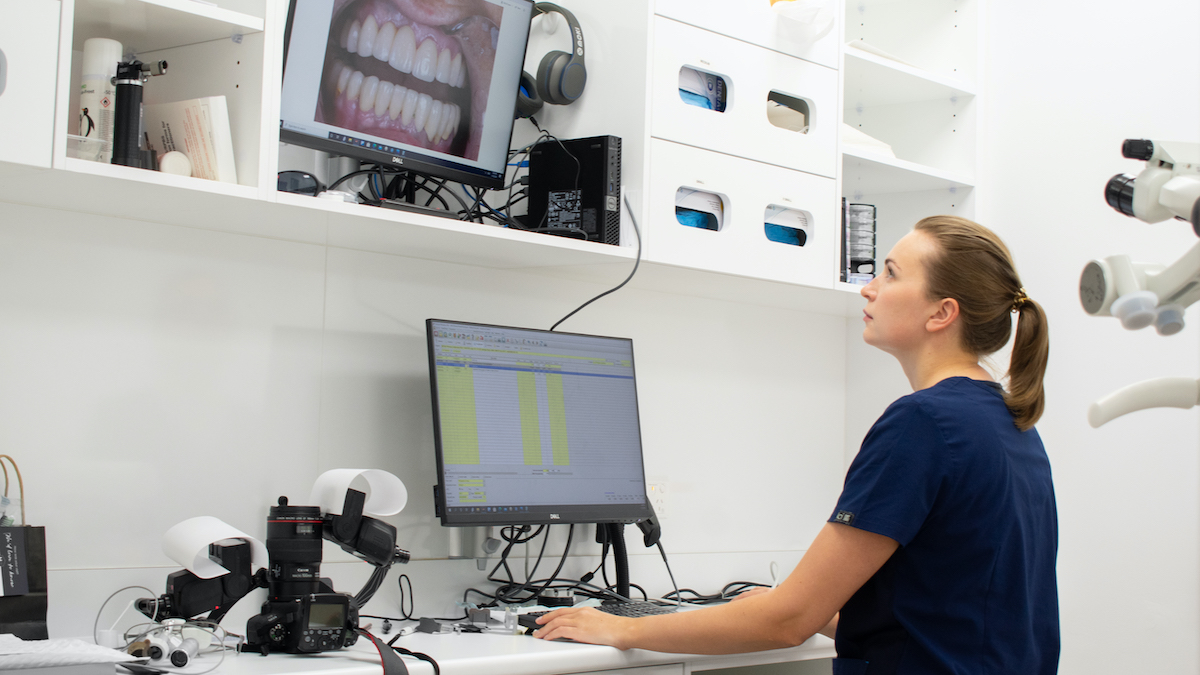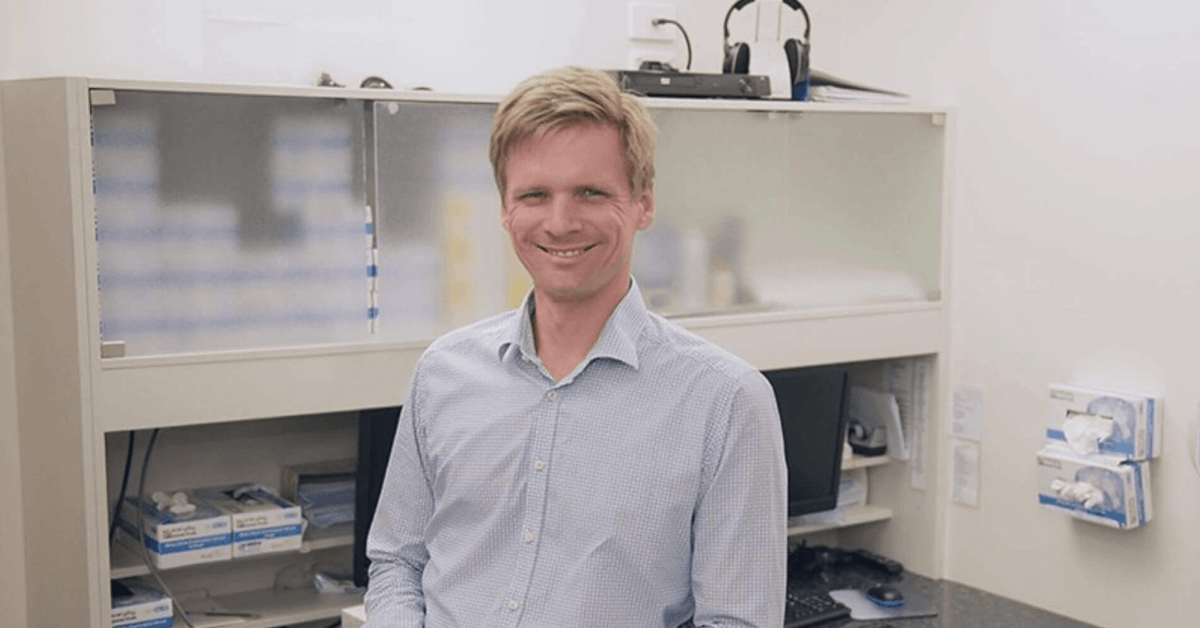Dr Ekaterina Pugina is 32 years old.
She has been a practicing general dentist since 2010.
Kat's challenges
- Kat Pugina struggled to attract patients who cared for their oral health beyond emergency visits.
- Kat lacked confidence in communication, and consequently, struggled with treatment planning.
- Kat could not find a way past being an emergency dentist. This left her frustrated with the quantity of work she had to do to reach a level of economic stability, and limited the kind of dentistry that she practiced every day.
Kat's actions
- Kat studied RipeGlobal’s lectures on communication and treatment planning, which transformed her practice.
Kat's results
- She was able to move beyond emergency dentistry, and learned to communicate the larger picture to her patients using skills she learned in treatment planning.
- Kat now has a 95% acceptance rate of her treatment plan proposals and boasts a one to three month waiting list.
Dr Kat Pugina faced even more obstacles than the average Australian dentist. After graduating dentistry school in Russia and practicing in a clinic there for some years, Kat immigrated to Australia and sat the Australian Dental Council Exam. She found that the dentistry curriculum taught in Russia was different to Australia and the practice of dentistry in both countries varied dramatically, in the breadth of its practice.
Kat's Practice In Russia
Dr Kat Pugina faced even more obstacles than the average Australian dentist. After graduating dentistry school in Russia and practicing in a clinic there for some years, Kat immigrated to Australia and sat the Australian Dental Council Exam. The culture of dentistry varied dramatically between her native and new country, which made her feel ill-equipped to meet the varying demands of general practice dentistry in Australia.
As it happens in many clinics around the world, dentists are relegated to work on a specialty such as cosmetic dentistry, endodontics, or implants. In place of obtaining professional education in this specialisation they master their skill because of the sheer number of patients they practice their specialty on. Kat worked mostly on patients who required endodontic care. She never had the opportunities to treatment plan large cases, diagnose or practice other general dentistry skills.
Kat’s Practice in Australia
Australia does not have many large dental clinics that are structured as a team of ultra-specialised dentists. Instead, clinics tend to be small, and the practicing dentist will see a patient starting from the initial consultation through to emergency and lifestyle dentistry. Australian dentists will need to have a breadth of skills that answer the general issues that commonly present in patients.
Because Kat's skill set required a specialisation in endodontics in her clinic in Russia, it was never part of her job to assess the patient's other issues. Treatment planning and patient communication had little or no place in her practice.
“Here in Australia, because I didn’t communicate well or know how to create a treatment plan, I had a serious case of Impostor Syndrome to overcome. I felt it a lot.
The patient didn’t trust me, so it was very difficult to propose a complex treatment plan.”
“The culture of general dentistry in Australia demands that you need to have all the skills, and I needed to upgrade my soft skills such as communication. What I really came to understand from Dr Lincoln Harris’ lectures is that a dentist is a person with their own psychological limitations and problems, and to be a good dentist, you need to solve your own psychological limitations.”
Kat’s practice transformed when she studied RipeGlobal’s treatment planning and communication lectures.
What Treatment Planning Solved in Kat's Practice
When Kat began to include treatment planning into her practice it was immediately easier for her to communicate with her patients. "Treatment planning slows everything down and this creates space for trust to develop. I take the time to take photos. I do a full assessment, which makes it easier for me to see a broader picture myself and communicate the plan I have designed. The patient trusts me because they can see that I have their best interest in mind," she said.
"What switched a light on for me was something Lincoln’s said in his course: don’t treat yourself, treat the patient. This was an epiphany for me. If I think I need more time, it’s because I do. It’s not because I’m not good enough."
Kat's next epiphany came from Dr Harris' statement, "know what the patient wants, not what you want."
Highlights From The Treatment Planning Course
Kat saw that creating a staged approach was a game changer to her practice. She needed to stop trying to solve all of the patients problems in one session. To any staged treatment planning, Kat learned to take her time. If she needed time, she took the time. This also afforded time to the patient who needed to adapt to the paradigm shift that she was creating, as treatment planning is often an entirely new approach to dental health.
Kat noticed that when she asks her patients about their long term goals, it will likely alter the way she approaches their immediate fixes.
Communication and treatment planning in action
Kat learned first-hand how limited the options can be when a patient receives no treatment planning.
"I had a patient who had no back teeth," she said. "He came to see me because he had a sore posterior tooth. I had to remove the tooth. Because he had no back teeth, the bone beneath his gum had receded and therefore I could not offer him many options. If his previous dentist had considered his oral condition in the long term once his teeth were removed, my patient would now have more choices.”
“I showed him photos and x-rays and explained the negative effects of just taking the tooth out. Despite the fact that at first he was only interested in solving the pain problem the quickest and cheapest way, my patient asked me how to prevent further tooth loss. This is exactly the shift in our patient’s mindset we’re aiming for.”
"A patient of mine needed root canal treatment in one tooth," she said. "Normally I would have solved her root canal issue and I would not see her until she returned with another emergency. Instead, I began to gather the information to create a treatment plan: pictures, x rays, CBCT scans etc".
"This patient didn’t have any other emergency problems: no caries or periodontal disease, but he did have a lot of cracked teeth and wear. A year ago I would have assumed that he didn’t care, and I would have not discussed these observations with him."
"In Lincoln’s lecture he said that you should never confuse your lack of communication with your lack of technical skills. In other words, sometimes you are hesitant to advise the patient because you lack the necessary technical skills that are needed for their presenting issues, but your mind thinks that your communication is not good enough. It’s important to identify the weakness: is it skill or communication?"
"In this particular case I believed that I lacked both skill and communication because there was a lot of occlusion work involved and I did not feel confident in my occlusion skills."
"However because I took pictures and x rays, I was able to show the patient the condition of his teeth and what needs to be solved. I had the right tools to be able to communicate with him, and as for my lack of skills, I will need to either learn how to do it, or refer my patient on to another dentist."
It does take time. With everything that I felt uncomfortable with, I needed to ask all of the questions. When I am practicing dentistry in a way that I have never done before, it makes me feel like I am in the child state. I had to remember that I am in control. I am the one who makes the rules. Then it becomes easier.
RipeGlobal provides hours of lectures on Treatment Planning as part of our Memberships. Treatment Planning is also weaved through every course we offer, and we also offer the intensive Advanced Treatment Planning course.
Visit www.ripeglobal.com to learn more about Treatment Planning.






